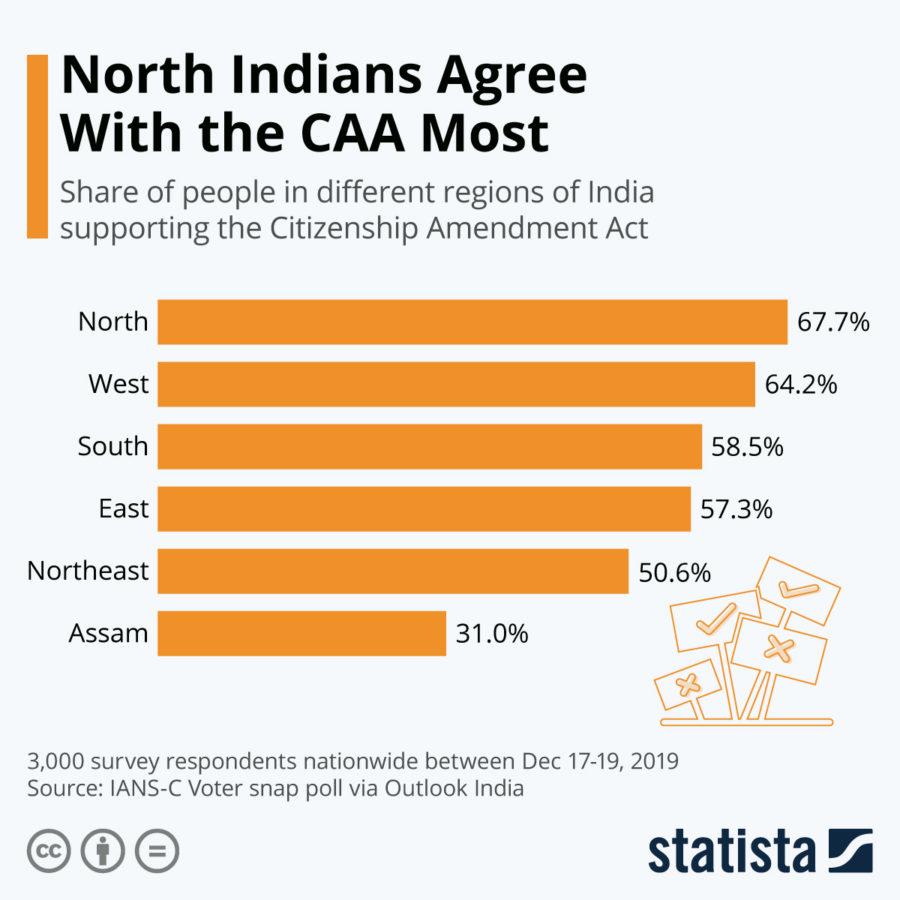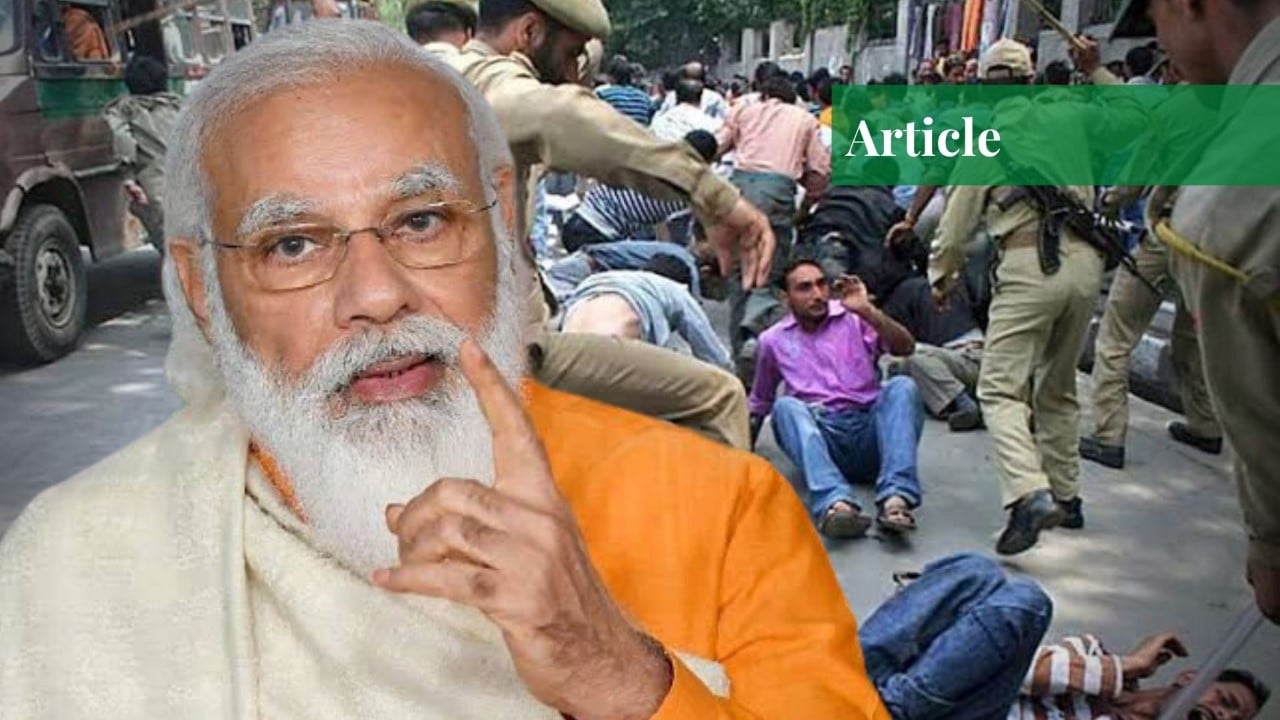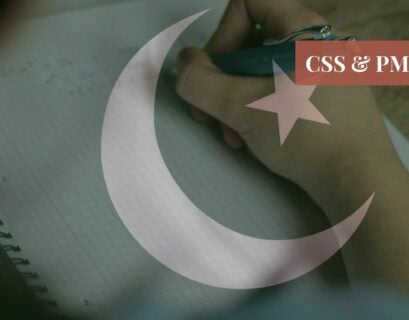Introduction
From the time of the Mughal dynasty to the British colonization and the creation of two separate states from the subcontinent – Pakistan for the Muslims and India for the Hindus – the conflict between the Hindus and Muslims has been persistent. Hence, it is no surprise that to this day, some may even hold a grudge against the other for many reasons.
Although two entities were made based on different religious ideologies, not all Muslims migrated to Pakistan. This was because of various circumstances. Some of the subcontinent Muslims weren’t willing to take the risk of being killed in the process or adapt to the change of environment, while others didn’t want to leave behind their heritage and lifestyle in India.
Thus, time and time again, India has used the trump card of oppressing the Muslims in their country to instigate their animosity with the neighboring Muslim state of Pakistan. Such attempts can be seen throughout history, for instance, the demolition of Babri Mosque in Ayodhya by local Hindus was witnessed in 1992.
Recently, the physical violence against a 45-year-old Muslim rickshaw driver in the northern state of Uttar Pradesh as well as the murder and eviction of Muslims in Assam have been brought to light. Similar situations of Muslim genocide in India can also be seen in the Indian part of Kashmir. It is claimed that all of the actions were carried out for the sole reason that the victims were Muslims and therefore this, supposedly, justified their actions.
The government of India has hardly played its role in bringing the perpetrators to the book; justice is yet to be served to the Muslim victims in India. The tenure of Narendra Modi has brought about greater Islamophobia, thanks to the growing Hindu nationalism cultivated by the Bharatiya Janata Party (BJP).
A Democratic India
After independence, India, led by Mohandas Karamchand Gandhi, did not inspire to become the state it is today. India aimed to become a place where different cultures and ethnicities could unite as a single front. The picture of India that Gandhi hoped to paint was one free of violence, based on welfare and democracy. He set his opinions straight in a weekly journal by the name of “Young India” in 1928 by saying:
“I came to the conclusion long ago…that all religions were true and also that all had some error in them, and whilst I hold by my own, I should hold others as dear as Hinduism. So we can only pray, if we are Hindus, not that a Christian should become a Hindu…But our innermost prayer should be a Hindu should be a better Hindu, a Muslim a better Muslim, a Christian a better Christian.”
However, the fact of the matter is that the circumstances today simply haven’t allowed a Hindu to become a better Hindu or a Muslim to become a better Muslim, especially with the introduction of the Citizenship Amendment Act 2019. The bill requires each individual to provide proof of their citizenship but the privilege of being honored with this verification is not available for Muslims.

So, retaliation and protests have erupted as Muslims raise their voices against the oppression they face. This has given way for more violence, taking place from both sides. Muslims in Pakistan have also showcased their antipathy by taking out their anger on the Hindus in Pakistan, on the pretense to avenge the humility faced by their fellow Muslim brothers.
The breaking of idols in Karachi, Pakistan at the Narayan Mandir and the attack on a Hindu temple in the province of Khyber Pakhtunkhwa are proof of such vengeful acts. It is therefore expected for such atrocities to continue to take place in India and Pakistan as the two religious groups fail to find a middle ground. Yet, none of the actions is justifiable from either side. As both countries struggle to follow the road towards development and democracy, addressing human rights issues is a dire necessity.
Muslim Genocide in India
All of the above bring us to the devastating situation today as Hindus publically declare to initiate a Muslim genocide in India. In order to preserve their Hindu identity, the locals have openly declared their plans for ethnic cleansing by massacring the Muslims of India. Inspired by the Rohingya Muslim genocide that took place in Myanmar in 2017, Yati Narsinghanand, a 53-year-old head priest of Dasna Devi temple in Uttar Pradesh’s Ghaziabad, overtly claimed that removing Muslims from the Indian equation was the solution to all their problems.
According to him, “Economic boycott won’t work. Hindu groups need to update themselves. Swords look good on stage only. This battle against Muslims will be won by those with better weapons.” The idea was welcomed with open arms by the audience as they cheered in approval.
Sadhvi Annapurna, general secretary of the Hindu Grand Assembly, while encouraging this idea, said, “Nothing is possible without weapons. If you want to eliminate their population then kill them. Be ready to kill and be ready to go to jail. Even if 100 of us are ready to kill 20 lakhs of them Muslims’, then we will be victorious, and go to jail.”
What Will Happen Next?
Despite this horrific declaration of Muslim genocide in India, the government has shown little reaction to this incident, compared to its outrage against the vandalism of the Hindu temples in Pakistan. It is a clash in priorities as the latter is considered a human rights issue while the former is dismissed as a necessary and “innocent” attempt at achieving the political agenda of nationalism. While Prime Minister Modi has not commented on the matter, his silence speaks plenty.
Although the conflict initially arose against Muslims, this proclamation triggered discrimination to be expressed against all other minority groups as well. At the same gathering, an individual said he wished to have killed Modi’s predecessor, Manmohan Singh, who was the first Sikh Prime Minister of India, while another boasted about not allowing Christmas to be celebrated in the hotels under his jurisdiction.
Moving forward, widespread bloodshed and anarchy are expected to take place as every Hindu citizen takes up the responsibility of this ethnic cleansing by his/her own hands. It is, therefore. pertinent for the United Nations to intervene if the government continues to give silent treatment in regards to the rights of the minorities. If timely action is not taken, it can lead to a severe human rights issue, affecting different parts of the world as protestors call for justice for their fellow brothers and sisters in religion.
If you want to submit your articles, research papers, and book reviews, please check the Submissions page.
The views and opinions expressed in this article/paper are the author’s own and do not necessarily reflect the editorial position of Paradigm Shift.



















